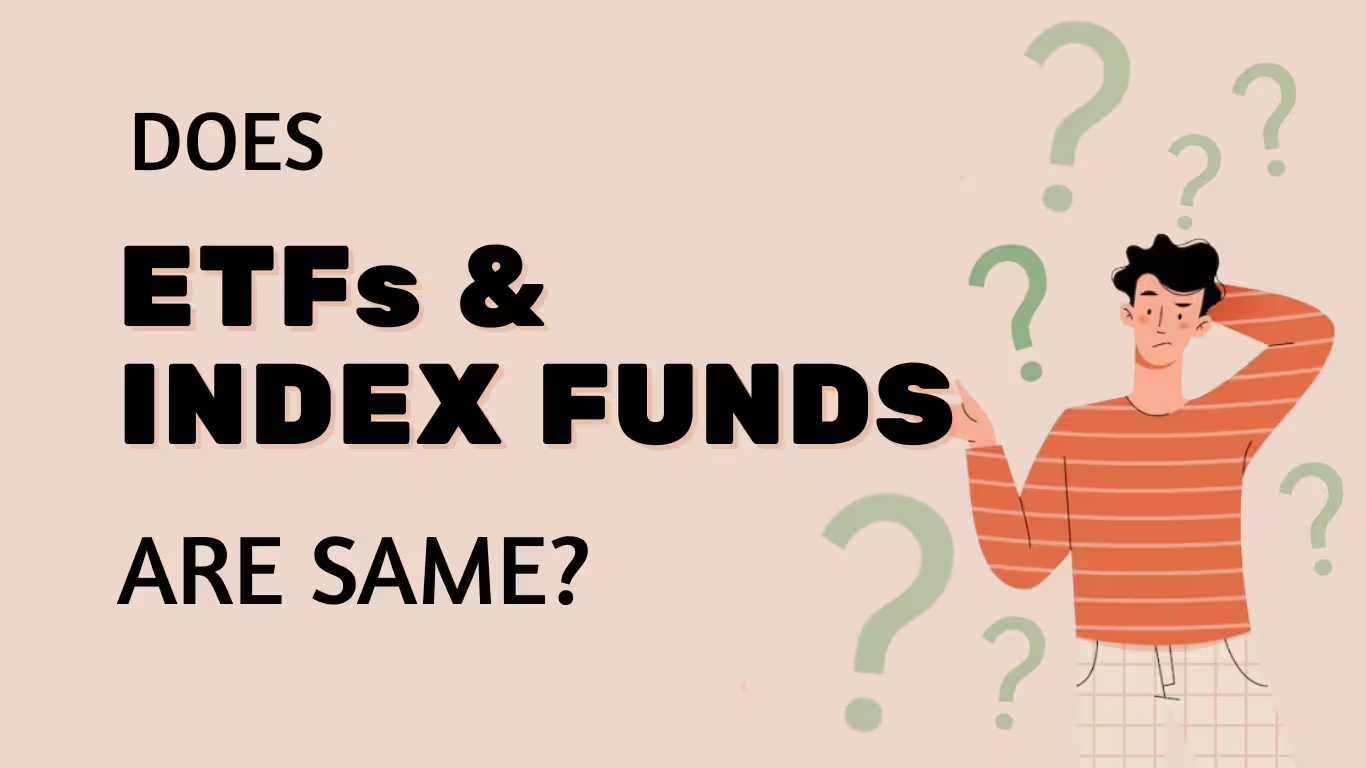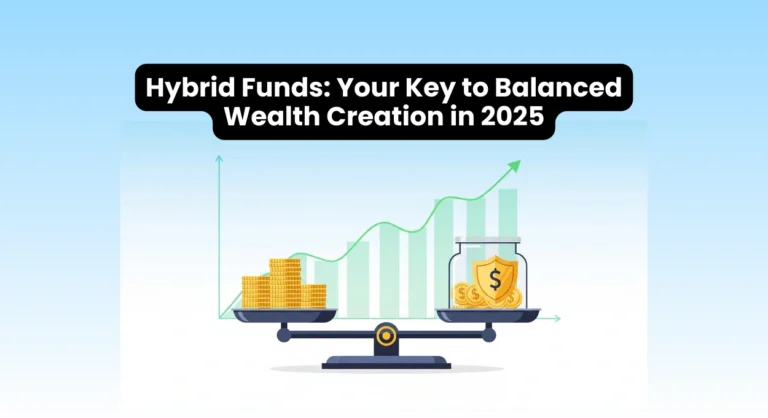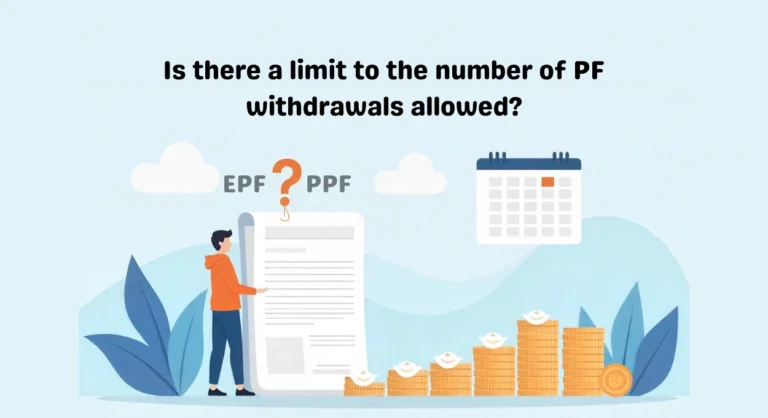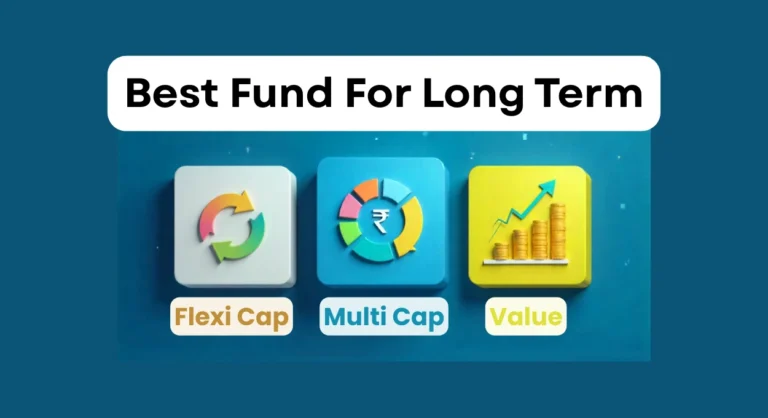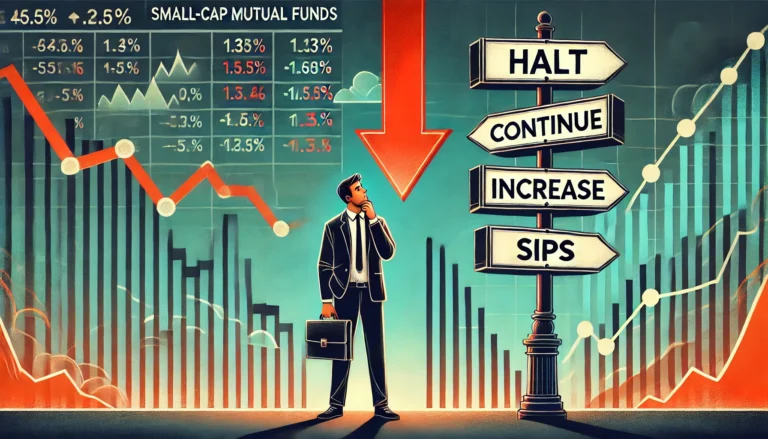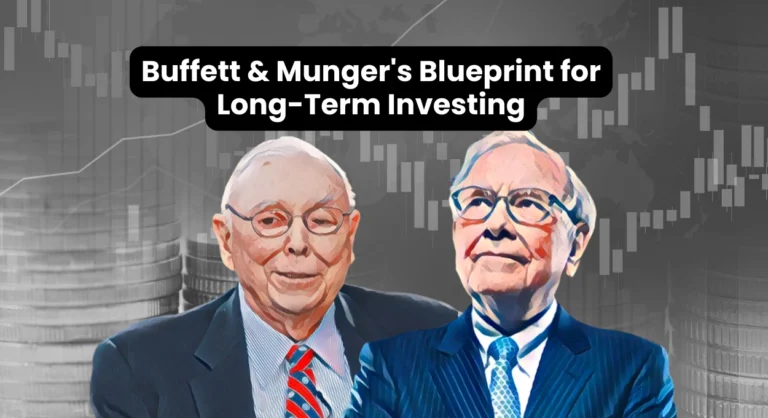ETFs vs. Index Funds: Decoding the Differences for Smart Investing
So, you’re stepping into the exciting world of investing and keep hearing about ETFs and Index Funds. They both sound like the golden ticket to growing your money without breaking a sweat, right? Well, you’re on the right track! These are indeed smart, low-cost ways to invest, but understanding their nuances is key to choosing the right vehicle for your financial journey.
Think of this as your friendly guide, breaking down the jargon and highlighting the real differences so you can confidently decide which one fits your investment style and goals. Let’s dive in!
What Are ETFs and Index Funds?
At their core, both ETFs and Index Funds share a common goal: to mirror the performance of a specific market index. This could be a broad market benchmark like the Nifty 50 or the S&P 500, a specific sector index (like a banking or technology index), or even a commodity index (like gold). The idea is to passively track the performance of a predefined group of assets rather than actively trying to “beat” the market.
ETFs (Exchange-Traded Funds): Your Real-Time Basket
Imagine an ETF as a ready-made basket filled with a specific set of stocks or other assets. This basket is designed to perfectly replicate the holdings of a particular index. The crucial thing about ETFs is that you can buy and sell these “baskets” (or units of the ETF) on a stock exchange, just like you would any individual company’s shares.
So, if you decide to invest in a Nifty 50 ETF, you’re essentially buying a small slice of ownership in all 50 of the top companies that make up the Nifty 50 index. The fund manager of the ETF ensures that the ETF’s holdings closely mirror the weightage of these 50 companies in the actual index.
Index Funds: The End-of-Day Tracker
Index funds, on the other hand, are a type of mutual fund that have the same objective as ETFs: to replicate the performance of a chosen index. They hold the same underlying assets in roughly the same proportions as the index they track.
The fundamental difference lies in how you buy and sell them. Unlike ETFs, you can’t trade index funds throughout the day on an exchange. Instead, when you place an order to buy or sell units of an index fund, your transaction is processed at the end of the trading day at a price known as the Net Asset Value (NAV). The NAV represents the total value of the fund’s assets minus its liabilities, divided by the number of outstanding units.
Key Differences at a Glance
To make things clearer, here’s a quick side-by-side comparison of the key features:
| Feature | ETF | Index Fund |
| Traded Like a Stock | Yes (real-time) | No (once a day at NAV) |
| Expense Ratio | Usually lower | Slightly higher |
| SIP (Systematic Investment Plan) | Difficult to automate | Easy to set up |
| Minimum Investment | Cost of 1 unit (can be ₹200 or less) | Usually ₹5,000 or more |
| Liquidity | High (but depends on volume) | Lower, processed by AMC |
| Ideal For | Active & cost-conscious investors | Long-term passive investors |
️
Also Read :- https://ipofront.in/step-up-sip-smart-investment-growth/
Let’s Talk About Structure
ETFs: Real-Time Action in Your Hands
Think of buying an ETF unit like buying a single share of a company. You need a demat account (a digital account to hold financial securities) to trade ETFs. The prices of ETF units fluctuate throughout the trading day based on the forces of supply and demand, just like stock prices. This real-time pricing gives you more control over when you buy and sell.
Example: Imagine you’re tracking a gold ETF. If you notice the price dips around lunchtime, and you believe it will rebound, you can execute a buy order immediately at that lower price.
Index Funds: Sit Back, Relax, and Let It Grow
Index funds operate more on a “set it and forget it” principle. You place your buy or sell order anytime during the day, but the actual transaction happens at the day’s closing NAV. This means you don’t get to react to intraday price movements. It’s ideal for those who prefer a hands-off approach and are focused on long-term growth rather than short-term trading opportunities. Setting up a Systematic Investment Plan (SIP), where a fixed amount is automatically invested at regular intervals (e.g., monthly), is generally easier with index funds.
Cost Matters: Let’s Compare
Over the long run, even small differences in costs can have a significant impact on your investment returns.
Expense Ratios: The Ongoing Fee
Both ETFs and index funds charge an expense ratio, which is an annual fee that covers the fund’s operating expenses (like management fees, administrative costs, etc.). Generally, ETFs tend to have lower expense ratios, sometimes as low as 0.1% or even less. Index funds, while also aiming for low costs, typically have slightly higher expense ratios, often ranging from 0.5% to 1.5%.
✅ Pro tip: When investing for several decades, even a seemingly small 0.5% difference in expense ratios can compound into lakhs of rupees in savings on your overall returns. Always pay attention to the expense ratio!
Transaction Costs: The Buying and Selling Fees
With ETFs, since you’re trading them like stocks, you’ll need a demat account and will incur brokerage fees every time you buy or sell. These fees can vary depending on your broker and the volume of your trades.
Index funds, being mutual funds, don’t have brokerage fees when you buy or sell units directly through the Asset Management Company (AMC). However, some index funds might have exit loads, which are charges you pay if you withdraw your money before a certain period (e.g., within the first year).
Also Read:- https://ipofront.in/build-wealth-with-mutual-funds-5-proven-strategies/
Tax Efficiency: Who Wins the Tax Battle?
When it comes to managing your tax liability, ETFs often have a slight edge over traditional index funds due to their unique structure.
ETFs Take the Lead with “In-Kind Redemption”
ETFs utilize a smart mechanism called “in-kind redemption.” When large investors want to exit an ETF, the fund typically gives them the underlying stocks rather than selling those stocks for cash. This process avoids the fund having to sell a large chunk of its holdings, which could trigger capital gains tax within the fund. These capital gains would then be passed on to all the remaining investors, even if they didn’t sell any units.
Index Funds? Potentially Less Tax-Friendly
Traditional index funds don’t have this in-kind redemption feature. When many investors redeem their units simultaneously, the fund manager might be forced to sell underlying stocks to generate the cash needed for these redemptions. This selling can create capital gains within the fund, which are then distributed to all the fund’s investors, making them potentially taxable even if you haven’t sold any of your units.
Also Read :- https://ipofront.in/8-golden-rules-to-sip-investing/
Which One Should YOU Choose? Let’s Get Personal.
The best choice between ETFs and index funds ultimately depends on your individual investment goals, style, and preferences. Let’s break it down based on different investor profiles:
If You’re a Long-Term, Hands-Off Investor:
Go with an Index Fund. The ease of setting up automated SIPs makes index funds ideal for consistent, long-term investing without the need for constant market monitoring. You can simply set your investment amount and frequency, and let your money grow over time at the NAV applicable at the end of each investment day.
If You’re Market-Savvy and Want Flexibility:
Choose ETFs. If you enjoy tracking market movements, want the ability to buy on dips or sell during rallies in real-time, and are comfortable with the mechanics of trading through a demat account, ETFs offer that flexibility. You can even use limit orders to buy or sell at specific price points. However, remember that this more active approach also requires more attention and might involve brokerage costs.
Minimum Investments & Ease of Access:
ETFs: Often have a lower entry barrier as you can start by buying just one unit, which could cost as little as a few hundred rupees (or even less in some cases). This makes them more accessible for investors with smaller initial capital.
Index Funds: Typically have a higher minimum investment requirement, often starting around ₹5,000 for a lump sum and ₹500 per month for a SIP. So, if you’re on a tight budget, ETFs might be the easier starting point.
Also Read :- https://ipofront.in/mastering-patience-the-key-to-investment-success/
What About Risks?
It’s important to remember that both ETFs and index funds come with their own set of potential risks:
Tracking Error:
Both aim to perfectly “track” their underlying index, but factors like fund management fees and the way the fund replicates the index can lead to a slight difference between the fund’s actual returns and the index’s performance.19 This difference is known as the tracking error. While generally small for well-managed funds tracking broad market indices, it’s something to be aware of.
Liquidity Risks (Primarily for ETFs):
While ETFs tracking popular and liquid indices like the Nifty 50 usually have high trading volumes, some niche or sector-specific ETFs might have low trading activity. This low liquidity can make it harder to buy or sell units quickly without potentially facing a wider spread (the difference between the buying and selling price), effectively increasing your transaction cost.20
✅ Pro Tip: For smoother and more cost-effective investing, stick to ETFs with high trading volumes or broad-market index funds.
Performance Over Time:
Over the long term, the performance of both ETFs and index funds closely mirrors their respective benchmarks.21 However, the slightly lower expense ratios of ETFs can translate into a marginal outperformance compared to a similar index fund over many years.22 But remember, your overall returns will be much more significantly influenced by the performance of the underlying market and your time horizon than by this small cost difference. Time in the market beats timing the market!
Real-Life Example:
Meet Riya and Arjun, two friends starting their investment journeys:
-
Riya: She likes the idea of setting up a monthly SIP and doesn’t want to constantly worry about checking stock prices. She opts for a Nifty 50 Index Fund and lets her investments grow steadily over the long term.
-
Arjun: He enjoys keeping an eye on the market and wants the flexibility to buy when he sees a dip and potentially sell if he anticipates a correction. He chooses a Nifty 50 ETF so he can trade when he wants, aiming to keep his overall costs low by being mindful of brokerage.
Two different people with different preferences, leading to two equally smart strategies based on their individual needs.
Also Read :- https://ipofront.in/are-mutual-funds-safe-investments/
️ Final Thoughts: Which One Should You Pick?
Here’s a quick cheat sheet to help you decide:
| You’re someone who… | Go For… |
| Likes automation and SIPs | Index Fund |
| Wants low fees and flexibility | ETF |
| Hates opening demat accounts | Index Fund |
| Enjoys real-time trading | ETF |
| Is investing for the long term (5+ years) | Either works! |
Wrap-Up
ETFs and index funds are both fantastic and efficient tools for passive investing, offering diversification and typically lower costs than actively managed funds.23 The “better” option isn’t universal; it boils down to understanding your own investment style, your time horizon, and your comfort level with trading and managing a demat account.
Whichever path you choose, remember that by opting for these low-cost, diversified investment vehicles, you’re already making a smart move towards your financial goals.
So—ETF or Index Fund? There’s no wrong answer, only the one that works best for you.
FAQs (Frequently Asked Questions)
1. Which is better for beginners: ETFs or index funds?
For beginners, index funds are usually easier to start with. They don’t require a demat account, can be automated through SIPs, and don’t need constant market tracking. ETFs offer flexibility but are better suited for slightly more active investors.
2. Do ETFs give better returns than index funds?
Returns are generally similar since both track the same index. However, ETFs may deliver slightly higher returns due to lower expense ratios. That said, factors like brokerage fees and bid-ask spreads in ETFs can reduce those gains.
3. Is a demat account required for investing in index funds?
No, a demat account is not required for index funds. You can invest directly through mutual fund platforms or apps using your bank account and KYC documents. But for ETFs, a demat and trading account is mandatory.
4. Can I do SIP in ETFs like I can in index funds?
Not exactly. ETFs don’t support SIPs in the traditional sense through mutual fund platforms. You’d need to manually buy units regularly via your trading account, or use platforms that offer ETF baskets or similar automation.
5. Are ETFs riskier than index funds?
Not necessarily. The underlying risk is the same because both track an index. However, ETFs can show more short-term price volatility since they’re traded throughout the day, whereas index funds settle at a single daily price.
Useful Links :-
Index ETF vs index mutual fund: Where should you invest and why – CNBC TV18
Why Index Funds score over ETFs?
ETF vs. index fund: What’s the difference? | Fidelity
ETFs Vs Index Funds: Which Is Right for Your Portfolio?
Index Funds vs Exchange-Traded Funds: Choose the Right One

